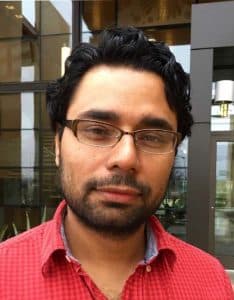The Texas Biomedical Forum is an independent, non-profit association dedicated to promoting the life-saving work of Texas Biomed. The Forum sponsors one-year pilot projects that help scientists prove concepts that can lead to subsequent and often significant federal funding of research. In the last fourteen years alone, the results of funded studies have led to additional grants amounting to an estimated $55 million.
This year, the Forum provided $240,000 in grants to scientists at Texas Biomed.
The 2018 Scientist level Forum grant recipients are:
$60,000

$60,000
Dr. Torrelles is working to develop and test the performance of a 2nd generation TB Color Plate test with the ultimate goal of developing and implementing a faster (14 vs. 56-84 days), field-based, easy-to-use, and inexpensive drug susceptibility testing (DST) for drug-resistant TB in high TB index rate regions. This will allow faster detection, cost reductions, and thus, significantly aid in preventing transmission of drug-resistant TB in humans.
The 2018 Staff Scientist level Forum grant recipient is:

Varun Dwivedi, Ph.D.
$59,958.98
Dr. Dwivedi proposes a strategy of host derived IL-10 modulation, strictly at the time of vaccination for generating a qualitatively different set of T cells resulting in sustained long-term protection against M.tb infection in mice.
The 2018 Post Doc level Forum grant recipient is:

$59,985
Macrophages are host immune cells that are critical for controlling TB. This project focuses on the role of lipid signaling molecules known as eicosanoids on macrophage responses. We are investigating the kinetic release of eicosanoids in TB infected human macrophages, and will determine the effects of eicosanoids on macrophage activation and metabolism as well as TB pathogenesis. This detailed analysis of eicosanoid regulation of macrophage responses to TB will provide insight into pathways that can be targeted for novel approaches to host-directed therapy for TB.
